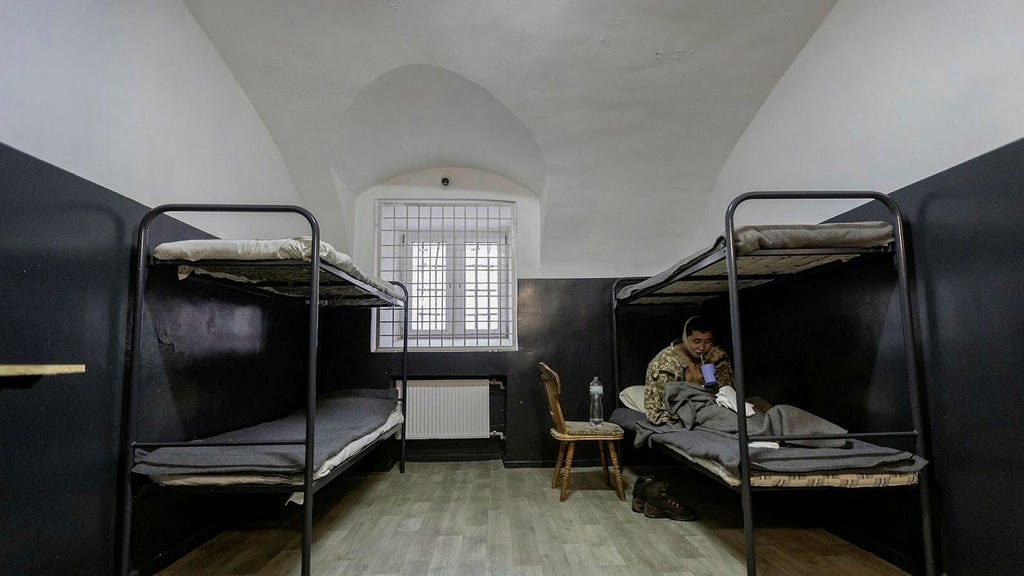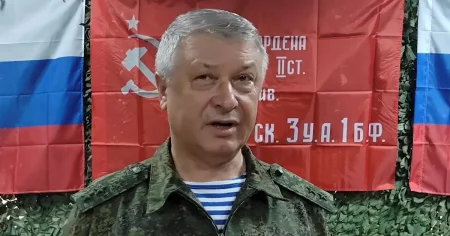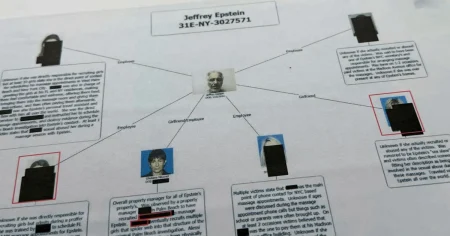A chilling glimpse into the realities of the Ukraine war has emerged through the discovery of a diary penned by a North Korean soldier, written in blue ink on the lined pages of a school notebook. Recovered by Ukrainian special forces, the diary chronicles the soldier’s experiences fighting on the front lines near Kursk, where he reportedly died in late December. Independent experts, as cited by the Wall Street Journal, which published excerpts from the diary, have deemed the writings authentic. The diary offers a stark portrayal of the conditions faced by these deployed soldiers, highlighting their use as bait to lure Ukrainian drones, their deep indoctrination into the North Korean regime, and their longing for home.
The diary recounts a disturbing tactic employed by the Russian forces, using North Korean soldiers as human decoys to draw fire from Ukrainian drones. The soldier describes the procedure: one soldier acts as bait to attract the drone’s attention while two others take aim and attempt to shoot it down. This grim strategy underscores the expendable nature of these soldiers in the eyes of their commanders and paints a picture of a desperate and brutal conflict. Beyond the tactical details, the diary also reveals the emotional turmoil experienced by the soldier, caught between the propaganda-fueled loyalty to his homeland and the harsh realities of war in a foreign land.
The soldier’s writing expresses a deep longing for his family and home, juxtaposed with unwavering devotion to North Korean dictator Kim Jong-Un. He yearns for the ”warm embrace” of his parents while simultaneously proclaiming his willingness to carry out the Supreme Leader’s orders, even at the cost of his own life. This internal conflict, evident in the diary entries, reveals the powerful grip of North Korean indoctrination, where loyalty to the regime supersedes personal safety and familial bonds. The diary entries, seemingly mundane at times, offer a rare and intimate portrayal of the psychological impact of war on an individual soldier.
The authenticity of the diary is strengthened by expert analysis. Bang Jong-kwan, a former major general in the South Korean army, points to the language used in the diary, specifically the references to Kim Jong-Un’s ruling party as a ”benevolent embrace” and the soldier’s perceived duty to protect the leader, as characteristic of the indoctrination instilled in North Korean soldiers. This expert assessment lends credence to the diary’s contents, offering a valuable insight into the mindset of these soldiers deployed far from home. The diary serves as a testament to the power of propaganda and the extent of control exerted by the North Korean regime.
The deployment of North Korean soldiers to Ukraine has been a subject of much speculation and concern. Estimates suggest that between 10,000 and 12,000 North Korean troops were sent to Russia in October of the previous year, with many subsequently deployed to the front lines. While Ukrainian President Volodymyr Zelenskyy has claimed that around 4,000 North Korean soldiers have been killed or wounded, South Korean intelligence reports suggest a significantly lower figure of around 1,000 casualties. This discrepancy highlights the difficulty in obtaining accurate information from the war zone and the ongoing efforts to understand the true extent of North Korea’s involvement. Furthermore, reports indicate that North Korea may be preparing a second deployment of soldiers to Russia, signaling a potential escalation of their involvement in the conflict.
The diary discovered by Ukrainian forces provides a rare window into the experiences of North Korean soldiers fighting in Ukraine. It reveals not only their tactical deployment as drone bait but also the psychological impact of war and indoctrination. The soldier’s longing for home, coupled with his unwavering loyalty to Kim Jong-Un, highlights the complexities of their situation. The diary’s authenticity, supported by expert analysis, underscores its value as a primary source for understanding North Korea’s involvement in the conflict. This involvement, with thousands of soldiers deployed and potentially more to come, raises significant concerns about the escalating nature of the war and the human cost borne by soldiers far from home.














